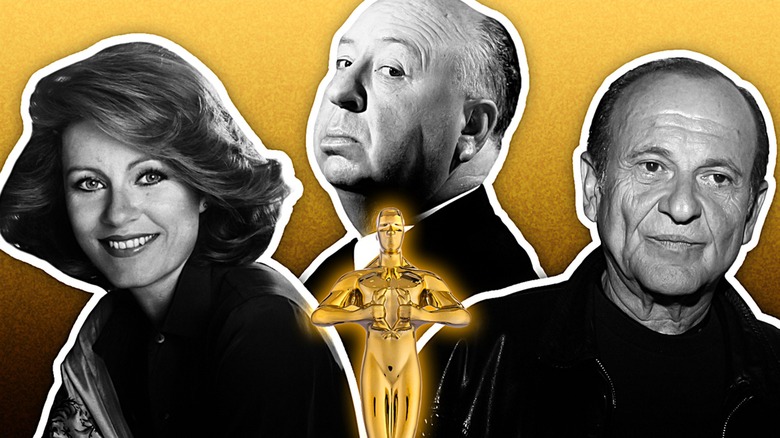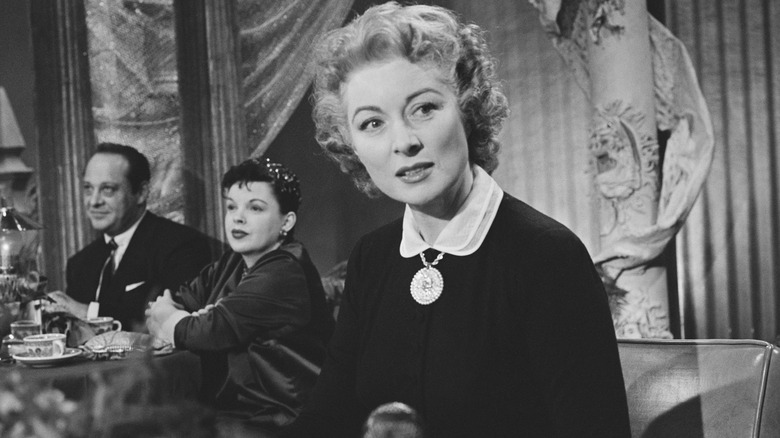The Shortest Oscars Speeches Of All Time
Whenever the Oscars come around, it's always interesting to see which acceptance speeches resonate with audiences. Winners can either tug at the viewer's heartstrings or leave them bored, making every speech a gamble. Sometimes, Oscar winners refuse their awards, giving us nothing to nitpick. There's also the issue of celebrity lectures running too long, compelling the awards show to play winners off on their big night. It can be incredibly disrespectful, but it also stops an A-lister from rambling — which can be a win. The most fascinating speeches are the ones that are more than just short — they're so bite-sized that you can blink and miss them.
In 2016, ABC released a supercut of all the shortest Oscars acceptance speeches and they're a doozy, showing winners getting straight to the point. "Thank you," is the shortest one; those words have been shared by many greats over the years. Acclaimed director Alfred Hitchcock uttered that phrase during his 1968 acceptance speech for his honorary award. Patty Duke said, "Thank you," with glee while accepting the best supporting actress award in 1963.
There have been variations of "Thank you," with the magic words being repeated twice by William Holden for winning best actor for his performance in "Stalag 17." Perhaps the most iconic shortest speech in Oscars history is when Joe Pesci won best supporting actor for his role in "Goodfellas." "It's my privilege, thank you," he said to applause.
What's the longest speech in Oscars history?
It's often a treat for viewers whenever a short speech comes around — and they're quite rare. Most Oscar speeches are long, self-congratulatory, riddled with repetitive information, and filled with advice that doesn't impact viewers. Short speeches are simple and arguably hilarious, as audiences likely expect more from their favorite stars and creatives.
While some speeches are genuinely bad, it's also pretty rude when the orchestra plays off winners who have waited their entire lives for the honor. The Academy Awards have a "strict" 45-second limit for speeches, though most tend to go over it. That's fine for most winners, but too little time for some heavyweights, like British actress Greer Garson, who is actually responsible for that 45-second rule. Back in 1943, she won the Academy Award for best actress for her performance in "Mrs. Miniver." During her speech at the 15th Oscars, Garson spoke for some seven minutes, a far cry from the 45 seconds afforded to today's winners. Unfortunately, Garson's words can't be heard in full, as the Academy of Motion Picture Arts & Sciences has only archived some four minutes of the speech.
Speeches are always a mixed bag and can easily veer into controversial territory, turning off viewers. With so much drama and tons of lengthy speeches, it makes sense why some people have stopped watching the Oscars.
To read more about the Academy Awards, check out the untold truth of the Oscars.

